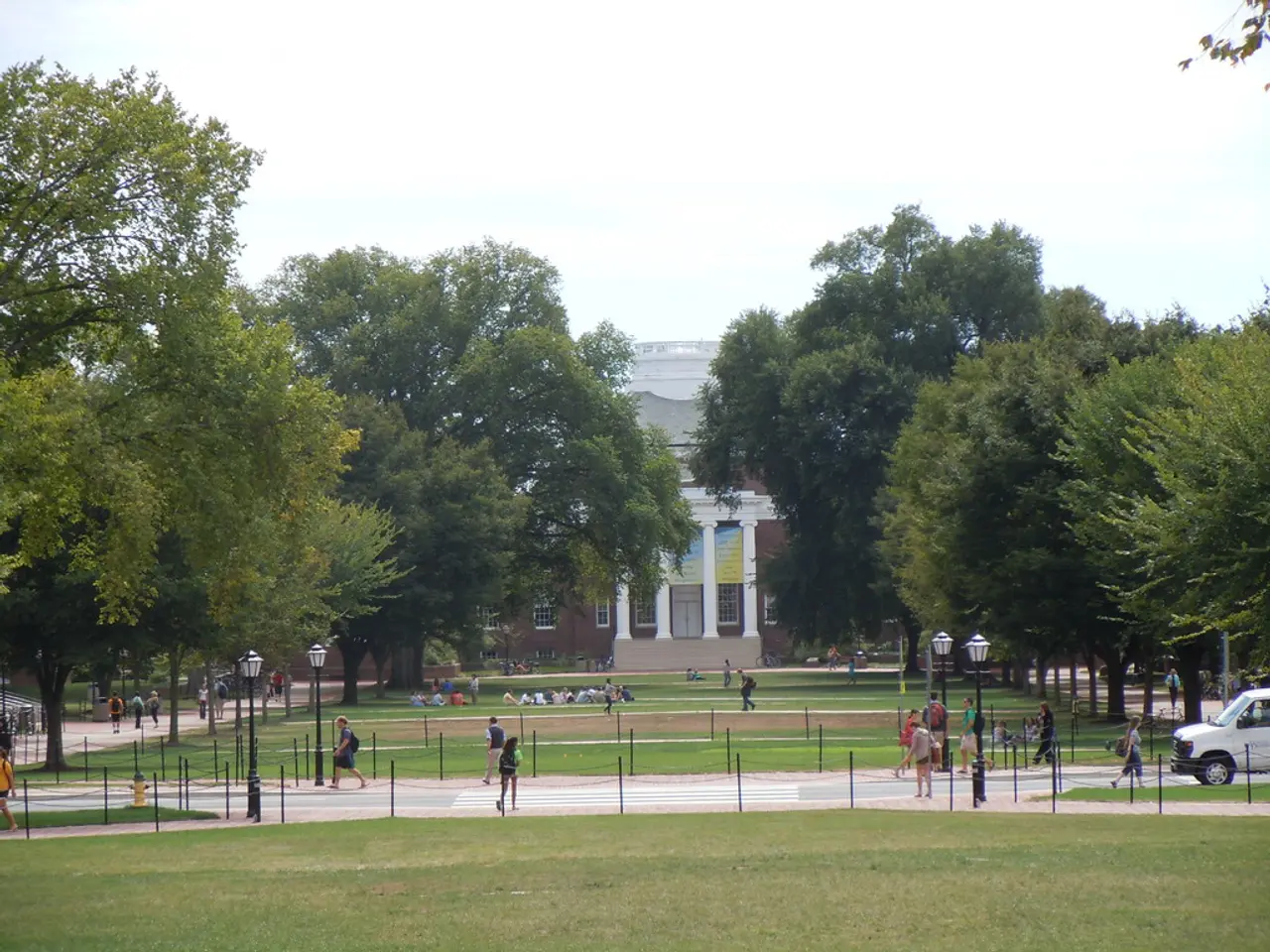Financing Higher Education in UAE: Strategies for UAE parents to meet their children's school expenses
In the face of rising interest rates due to the United States Federal Reserve's decision to increase interest rates to curb inflation, families in the UAE seeking financial aid for post-graduate programs may find themselves in a predicament. However, there are several alternative funding options available beyond traditional asset-backed loans and overdrafts.
Unsecured Education Loans and Loans Against Mutual Funds
One feasible alternative is unsecured education loans offered by banks and Non-Banking Financial Companies (NBFCs). These loans are based on the borrower's eligibility, income, and course details, with some public and private banks providing loans up to around INR 15-25 Lakhs (approximately USD 50-55K) without collateral. Specialized NBFCs can offer higher amounts, up to INR 40 Lakhs (approximately USD 50-55K), secured by the borrower's creditworthiness rather than assets [1].
Another option is Loans Against Mutual Funds (LAMF), where families who hold mutual fund investments can pledge these units as security to borrow funds without selling the investments. Such loans allow borrowing up to 60-85% of the net asset value of pledged funds, often at lower interest rates than personal loans, with flexible repayment options and the benefit of keeping investments intact [2].
International Education Loan Marketplaces
Platforms like WeMakeScholars, Edufund, and Leap Finance facilitate access to tailored education loan options for studying abroad, including unsecured loans and loans without collateral, often with guidance to find competitive interest rates and flexible terms [3][5].
Budgeting for University Education in the UAE
Parents preparing for heavy personal financings to fund their children's university education will have to do difficult estimations and budget planning due to rising interest rates. To qualify for a mortgage loan acquisition, parents must have a monthly income of Dh30,000 or more. Refinancing their loan with a balance transfer may help parents reduce their interest outgo.
The total financing amount for a parent in this situation would be Dh750,000. The interest rate for the top-up loan in this scenario is 5.29 percent for 60 months. If a parent has a property worth Dh1 million in the UAE with a superior mortgage of Dh 500,000, they can obtain a top-up loan of Dh250,000 from financial institutions for educational purposes.
Other Considerations
Interest rates on asset-backed loans in the UAE currently stand at 5.9-6 percent per decreasing price per year. Non-payment of education costs using credit cards can negatively affect a parent's credit rating. Asset-backed loans are becoming a popular alternative among parents in the UAE seeking finances for their children's education.
However, paying education costs using credit cards is the most expensive funding option in the market and can lead to high recurring interest. Using other credit products such as business loans or credit cards may overburden parents with debt. The average tuition cost for undergraduate courses in the UAE ranges from Dh37,500-Dh70,000 a year. Parents need a minimal monthly salary of Dh7,000 to qualify for education loans in the UAE.
Parents can approach universities to provide an interest-free instalment plan for tuition fees. The cost of studying abroad can go up to Dh250,000, depending on the country and college chosen. Banks in the UAE provide loans for academic purposes based on the parents' credentials and financial health.
In conclusion, families in the UAE have several alternative funding options available for post-graduate programs, including unsecured education loans, loans against mutual funds, and international education loan marketplaces. It is essential for parents to carefully consider their financial situation, research their options, and make informed decisions when choosing the best funding solution for their children's education.
[1] https://www.moneycontrol.com/news/business/personal-finance/education-loans-without-collateral-from-banks-nbfcs-are-a-feasible-alternative-to-asset-backed-loans-overdrafts-for-funding-education-in-the-uae-8685311.html [2] https://www.khaleejtimes.com/business/loans-against-mutual-funds-lamf-a-new-option-for-borrowers [3] https://www.khaleejtimes.com/education/study-abroad-loan-marketplaces-and-specialized-lenders [4] https://www.gulfnews.com/business/banking/uae-bank-offers-250-million-in-education-loans-1.1643204292538 [5] https://www.arabianbusiness.com/banking-finance/uae-bank-offers-250m-in-education-loans-554305.html
- In the wake of increased interest rates, unsecured education loans could be a viable alternative for families in UAE, as they are not asset-backed and can provide funds up to INR 15-25 Lakhs (approximately USD 50-55K) based on the borrower's eligibility, income, and course details.
- For those with existing mutual fund investments, Loans Against Mutual Funds (LAMF) offer a chance to borrow funds without selling the investments, enabling up to 60-85% of the net asset value of pledged funds.
- To assist families in finding competitive education loans for studying abroad, platforms such as WeMakeScholars, Edufund, and Leap Finance offer tailored loan options with guidance to secure favorable interest rates and flexible terms.
- Beyond loan options, budgeting plays a crucial role in university education planning, as parents must weigh factors like interest rates, monthly income requirements, and potential debt, while also considering alternative funding methods like interest-free instalment plans from universities.




